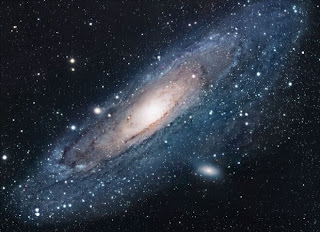Some philosophers, such as
Richard Swinburne have argued that there is evidence from fine tuning that the
specific laws of physics that allow intelligent life forms to exist are so
improbable that it is plausible that these laws were fine tuned by god in order
that intelligent life forms could exist (Leslie, 1990). Swinburne argued that a good
god would have particular reason to will that beings such as humans could come
to exist, e.g. so that we could develop the capacity to learn true beliefs,
such as the laws of physics.
This would seem to imply that the
purpose, or at least one purpose, of the universe was to allow the existence of
life forms such as human beings. This would therefore imply that our prehuman
ancestors existed mainly for the purpose of allowing human beings to evolve.
Therefore, hominoid life forms of the Miocene epoch for example might not have
had any purpose of their own, they might simply have existed as a precondition
of the emergence of human life.
What if human beings then are not themselves the reason for the
existence of the universe? Could it be that we exist as a precondition for the
emergence of some even more advanced form of life that we can hardly even
imagine? That is, humans might eventually evolve into super-intelligent life
forms that transcend the current limitations of human life. Therefore, even if
a god was responsible for fine tuning the laws of physics, human beings in
themselves might not have any relevance to the fulfillment of god’s ultimate purpose.
Therefore, current human concerns might hold no more interest for god than the
daily lives of prehuman apes.
This is very similar to
Nietzsche’s idea that man is a transitional form between the ape and the
superman.
The point is that even if god
were somehow involved in setting the laws of the universe to allow the
existence of living beings, it is quite possible that god’s purpose in doing so
has nothing to do with current human evolution. That is, human affairs might be
of no concern to god, who might have some unknown purpose we can barely
conceive of.
Human beings like to think that
their own lives are of great significance and therefore of concern to a higher
power. Yet chimpanzees might consider their own day-to-day needs and desires to
be of great importance yet it seems ludicrous to think that god is watching
over the lives of chimpanzees and taking a great interest in the outcomes of
their interpersonal dramas, of which they have plenty. Dinosaurs roamed the
earth for an impressive 120 million years. There is no evidence that
intelligent life forms would have evolved from dinosaurs if they had survived
even longer. Again it seems ludicrous to think that god was taking great
interest in their development and quotidian concerns. If dinosaurs were part of
some great design it seems hard to see how they could possibly fit in to some
purposeful scheme. On the other hand, if they evolved through natural processes
questions about their ‘purpose’ become irrelevant. Therefore, I think that the
great apes evolved through natural processes involving no design and see no
reason to suppose that human evolution involved design or purpose. Hence, I
find it preferable to suppose that the laws of physics as they apply in our
universe also developed through natural processes without a designer.
Click to enlarge image
Reference:

